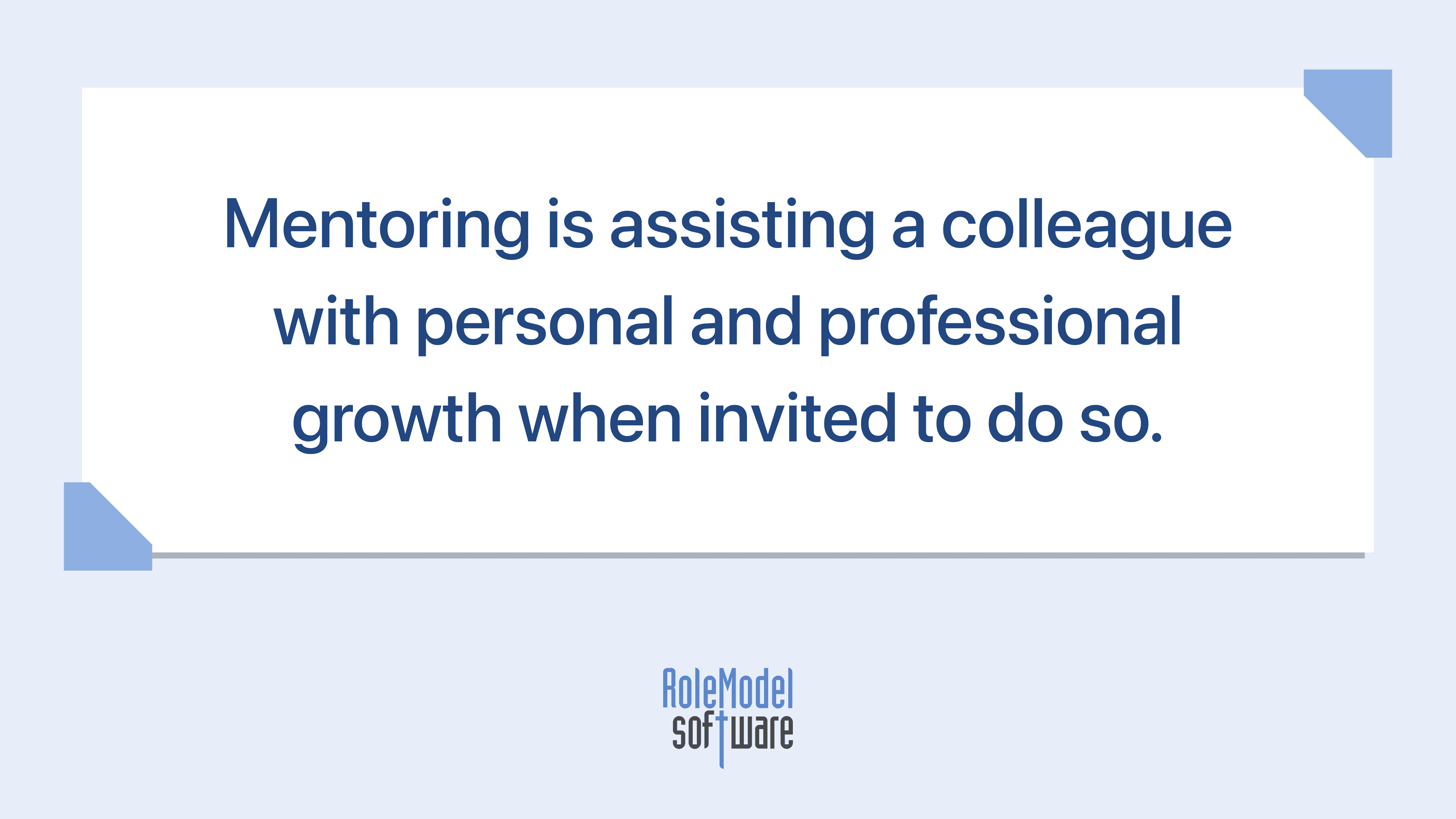The RoleModel Way of Mentorship
Videos
Craftsmanship Academy
RoleModel Way
mentoring
Mentorship
software craftsmanship
The RoleModel Way of Mentorship differs from what you will find in most other organizations. Mentorship permeates our culture. We focus on the relationship and not the recipe of how to get there, growth trajectory, not titles, and mentor replication—mentors that produce mentors.
SHARE POST



The RoleModel Way is the embodiment of the principles and practices of how we work applied to different areas of the business. One of the most central of those is mentorship. It’s in our name, RoleModel. It’s the perfect blend of our core values of Character, Collaboration, and Craftsmanship. It’s foundational to our company vision that we are a flourishing organization that launches careers, develops leaders, and serves with humility – so that others see God glorified in our work.
While it’s central, mentorship is not always natural or easy. It requires work, investment, and consistency. We define mentorship as assisting a colleague with personal and professional growth when invited to do so. It’s not about constantly giving advice, browbeating someone, routinely filling out forms, or being a full-time critic. It’s about giving helpful advice when needed, pointing out career dangers, flagging worthy pursuits, and generally encouraging and advocating for the mentee.

Mentorship takes a couple of forms, both direct and indirect. Each employee has a mentor assigned to them who focuses on advocating for their growth. In addition to assigned mentors, each employee has an opportunity to provide indirect mentorship to those around them by looking for opportunities to encourage and advocate for the personal and professional development of every single member of the team.
Relationship, not recipe
Our focus on membership is about building a relationship, not following a recipe. It’s not focused on performance evaluations or a checklist of steps we need to take—it’s about the whole person. We don’t just want to make better employees; we want to make better people and encourage people to grow. Mentors should encourage their mentees to look back on their accomplishments and lessons learned and look forward, inspiring their mentees with challenging but realistic goals.
Like any relationship, you get out what you put in. If you contribute to the relationship, you will more quickly establish a foundation of trust that will serve to produce maximum value in your mentorship relationship.
Trajectory, not a title
Mentors focus on what is holding their mentees back from their growth, providing accountability and steering them on their personal and professional journey. We are more focused on the trajectory of the person. How are they growing? Are they headed in the right direction? We only concentrate on a couple of things at a time to track progress, nurture growth in a particular area, and increase their effectiveness. You can’t focus on everything simultaneously; it’s too much.
Eventually, the role of the mentor switches to how can I help you steer and navigate growing in those areas? We are going to keep an eye on your progress, but are you continuously improving, iteratively improving your abilities in those areas as you grow? If you are, mentoring has been successful.
Mentor Replication
Mentor replication is central to how we think about mentorship and growth at RoleModel. It’s not about seeing an individual grow to their highest potential but rather unlocking the superpower that is the ability to mentor others in the same things they’ve learned. We grow by teaching, and focusing on the bigger impact of the team helps each individual to grow to their highest level. Mentor replication means that mentors guide their mentees, the mentees learn to mentor others through that process and eventually pass on that capability to the people they’re mentoring. It’s a reinforcing cycle; everybody gets better at it because we constantly practice it.
Whether you’re a Craftsman or someone just starting their career, having people who are further ahead and behind you in the mentoring journey allows us to have folks who are humble enough to learn and confident enough to teach others.
We practically apply the RoleModel way of mentorship in several areas. With the Craftsmanship Academy, we build the foundation of learning with a new cohort of employees each year. And we continue that through direct and indirect mentorship focused on a clear growth path with tight feedback loops.
The RoleModel Way of Mentorship differs from what you will find in most other organizations. It’s not about an administrative exercise; it’s not about checking boxes. It’s about creating a culture where we encourage growth, and people can feel free to receive and give feedback to help others grow.
Mentorship permeates our culture. We focus on the relationship and not the recipe of how to get there, growth trajectory, not titles, and mentor replication—mentors that produce mentors.
